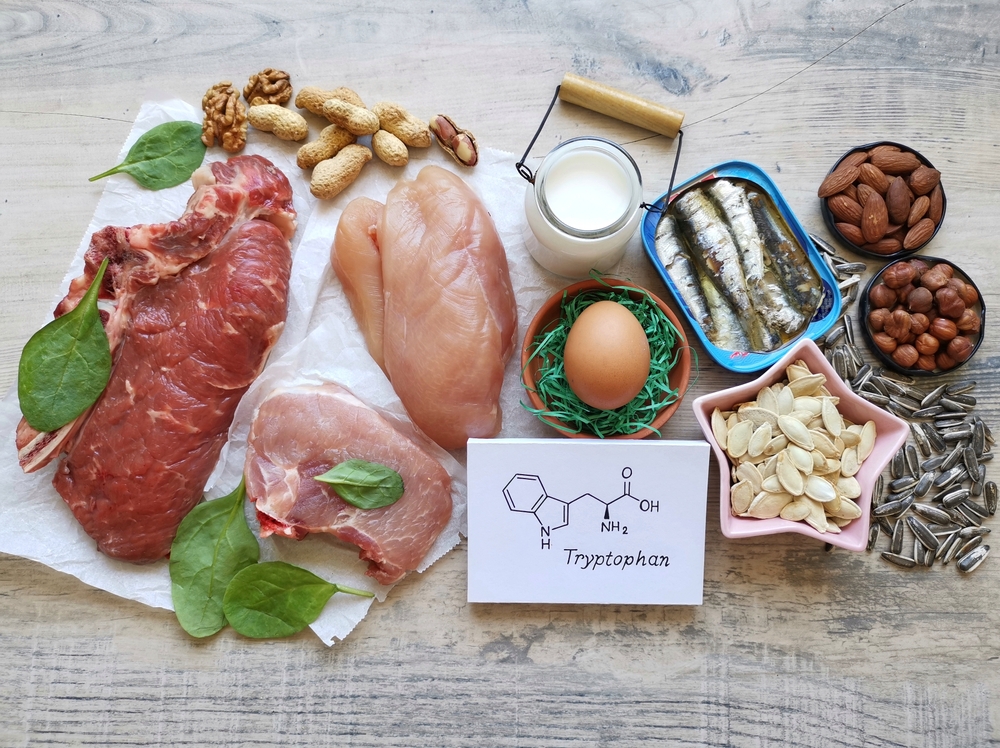Tryptophan is often dismissed as the reason for post-Thanksgiving fatigue, but its role in human health extends far beyond the holiday table. As an essential amino acid, tryptophan is crucial for numerous bodily functions, particularly in the regulation of mood, sleep, and cognitive performance. Since the body cannot produce it naturally, obtaining enough from diet or supplements is necessary for maintaining overall wellness.
Recent research has highlighted the importance of tryptophan in brain function, emphasizing its role in producing serotonin and melatonin—two neurotransmitters that significantly affect mental and physical health. While many associate tryptophan with drowsiness, its broader implications on emotional balance, memory retention, and even disease prevention are now coming to light.
How tryptophan influences mood
Serotonin, often referred to as the ‘feel-good’ hormone, depends on tryptophan. Without sufficient levels of this amino acid, the body struggles to produce serotonin, which is essential for regulating emotions, appetite, and even pain perception. Studies suggest that low tryptophan levels may contribute to increased irritability, stress, and symptoms of depression.
The connection between tryptophan and mood regulation has led researchers to explore its potential role in mental health treatments. While antidepressants work by preserving serotonin in the brain, ensuring an adequate intake of tryptophan may naturally support serotonin production, potentially benefiting those with mild mood disorders. However, individual responses vary, and dietary adjustments alone are not always enough to correct severe imbalances.
The essential link between tryptophan and sleep
Melatonin, the hormone responsible for sleep regulation, is synthesized from serotonin. Since tryptophan contributes to serotonin production, it also plays a key role in maintaining healthy sleep patterns. Many studies indicate that people with higher tryptophan intake experience better sleep quality and longer sleep duration.
While commonly believed to cause drowsiness after meals, tryptophan’s role in sleep is more complex. Unlike sedatives, it does not induce immediate sleepiness but rather supports the body’s natural sleep-wake cycle. Individuals struggling with insomnia or disrupted sleep may benefit from incorporating more tryptophan-rich foods into their diet or using supplements under medical supervision.
Cognitive benefits and brain health
Emerging research suggests that tryptophan may help slow cognitive decline. Studies in animal models have shown promising connections between tryptophan intake and improved memory retention, though human research is still in its early stages. Some scientists believe that increasing tryptophan consumption could help protect against age-related neurological disorders.
Beyond memory function, tryptophan also affects cognitive performance by supporting focus and learning. Since serotonin plays a role in neuroplasticity—the brain’s ability to adapt and form new connections—adequate tryptophan levels may contribute to improved problem-solving and decision-making abilities.
Additional health benefits scientists are exploring
Tryptophan’s influence extends beyond mood and cognition into other critical areas of health. Researchers are currently investigating its potential effects on:
- Athletic performance – Some evidence suggests that tryptophan may reduce perceived exertion during exercise, helping endurance athletes maintain performance levels.
- Cardiovascular health – Preliminary findings indicate that tryptophan might contribute to better heart health by reducing inflammation and supporting healthy blood vessel function.
- Digestive function – Since serotonin is also present in the gut, tryptophan may play a role in maintaining gastrointestinal balance and reducing symptoms of irritable bowel syndrome.
- Migraine reduction – Some studies propose that serotonin deficiencies may contribute to migraine frequency, making tryptophan an area of interest for headache prevention.
Where to get tryptophan in your diet
Tryptophan is naturally present in a variety of foods, making it accessible through a balanced diet. Some of the richest sources include:
- Poultry and red meats – Turkey and chicken are well-known for their high tryptophan content, but lean beef and pork also provide significant amounts.
- Seafood – Salmon, tuna, and shrimp contain tryptophan, along with beneficial omega-3 fatty acids that support brain health.
- Dairy products – Milk, cheese, and yogurt not only provide tryptophan but also contain calcium, which aids muscle relaxation and sleep quality.
- Plant-based options – Nuts, seeds, legumes, and soy products offer tryptophan for those following vegetarian or vegan diets.
Supplementation and safety considerations
Tryptophan supplements are available, but dosage and individual tolerance must be carefully managed. While generally safe, excessive intake can lead to side effects, including nausea, dizziness, and, in rare cases, a serious condition called serotonin syndrome.
Medical professionals recommend obtaining most tryptophan from food sources whenever possible. However, for individuals with serotonin imbalances or sleep disorders, supplementation may be beneficial under the guidance of a healthcare provider. Proper dosing and monitoring ensure that benefits are achieved without unwanted side effects.
The growing body of research on tryptophan underscores its potential beyond its well-known effects on sleep. Scientists continue to explore its role in emotional stability, brain function, and disease prevention, with new findings emerging regularly. As studies uncover more connections between tryptophan and overall health, it may become a more recognized component in nutritional and medical treatments.
For those looking to improve mood, sleep, and cognitive function, ensuring an adequate intake of tryptophan through diet or supplements may be a valuable step. With further scientific advancements, this essential amino acid could play an even greater role in shaping future health strategies.
















